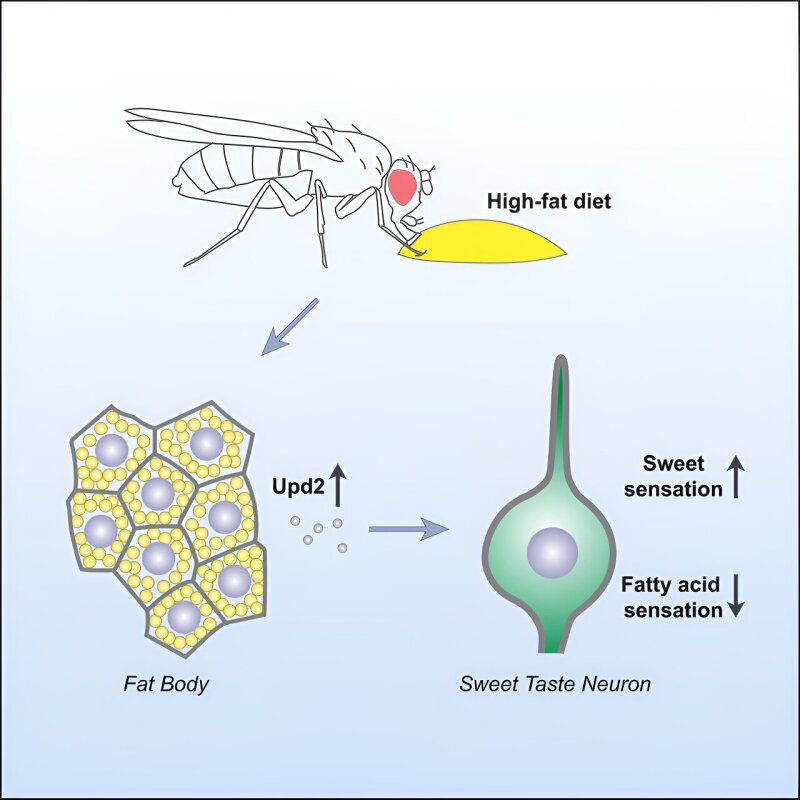Sugar and Fat Dynamics can Quietly Sabotage your Diet

Depositphotos
It’s not surprising that, overall, we consume excessive amounts of sugar. Researchers have discovered that when our craving for sweetness is satisfied, it is replaced by a sudden inclination for fatty foods, potentially disrupting metabolic functions and contributing to weight issues.
Hormonal Mechanism Unveiled in Umeå University Study on Fruit Flies
Scientists at Umeå University in Sweden have uncovered a hormonal mechanism activated by excessive sugar intake, leading to a desire for high-fat foods. In their study using fruit flies (Drosophila melanogaster), the consumption of sugar rapidly signaled the endocrine system to prompt a craving for fat, as a response to perceived malnutrition.
Co-author Mattias Alenius, Professor in the Department of Molecular Biology, clarified, “Excessive sugar diminishes the desire for sweetness but increases the inclination for fat, and conversely. This ensures that flies obtain an adequate balance of sugar and fat as essential nutrients.”

In 2022, the researchers discovered that even a minor rise in sugar consumption triggers the release of the Hedgehog (Hh) hormone. Although the circulating Hh hormone suppressed the perception and preference for sweetness, it significantly boosted the responsiveness of fatty acid receptors.
In this research, the investigators observed that excessive fat consumption led to the release of Upd2, equivalent to human leptin, from adipose tissue into the fly’s ‘bloodstream’ or hemolymph. This led to the suppression of the perception of fat taste and, instead, an increase in the desire for sugary foods.
Hormonal Signals in Response to Overindulgence in Sugar or Fat
This reciprocal regulation indicates that overindulgence in either sugar or fat will trigger the necessary hormones to signal a deficiency of the other substance that requires urgent balance.
“It’s a balancing act between sugar and fat – not a restriction of overall calories, as we would hope,” said Alenius. “Presumably, humans possess comparable compensation mechanisms to flies, meaning that we tend to prefer an equilibrium of fat and sugar. An American cheesecake is often considered the ideal way to stimulate our appetite.”
The researchers plan to extend the study to human subjects, anticipating a response similar to the hormonal triggers observed in flies.
“We, as humans, perceive fat as a flavor, and it remains to be seen if these research findings also apply to us,” Alenius added. “A topic for contemplation in future research.“
Read the original article on: New Atlas
Read more: Addressing the Climate Crisis Through Diet










